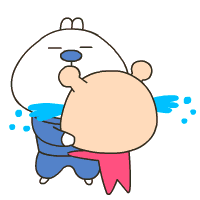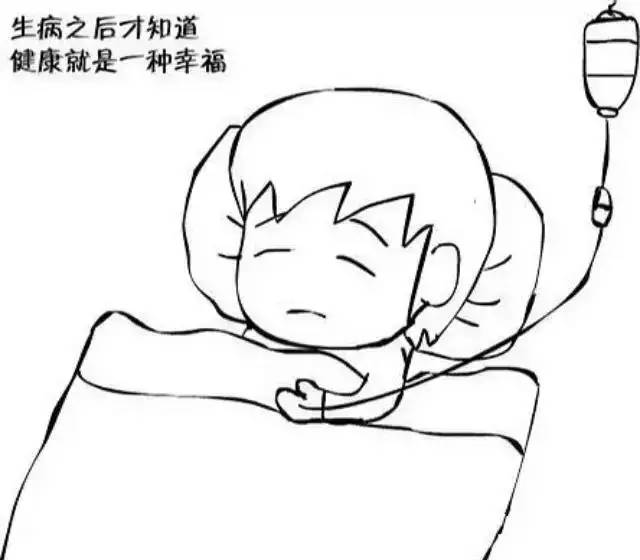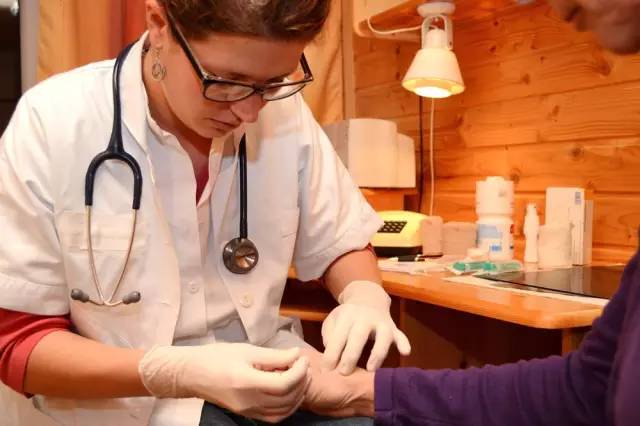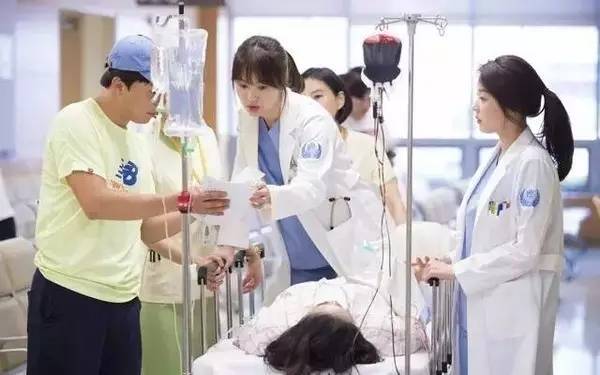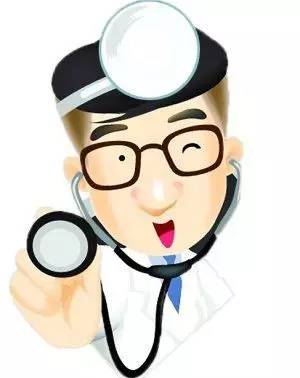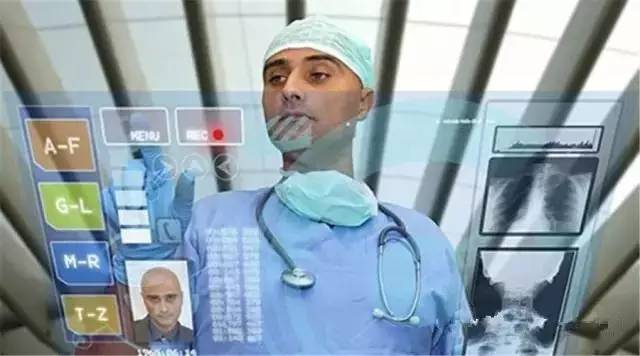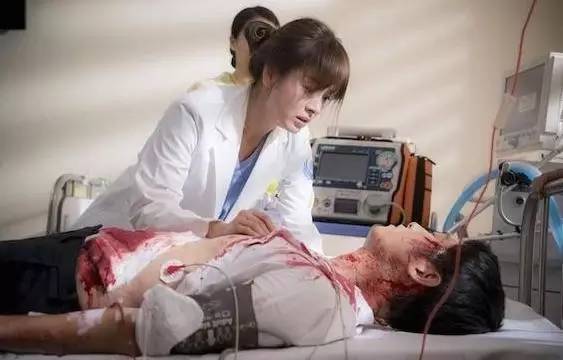著名醫生特魯多的墓志銘是,To Cure Sometimes, To Relieve Often, To Comfort Always. 有時治愈;常常幫助;總是安慰。
別人生病,我們雖然沒有醫者之術,但可以有一顆仁者之心,對生病的小夥伴,表示同情和安慰。
“I’m sorry to hear that.”
聽到這個我真難過。
“Actually, you don’t look very well.”
嗯,確實,你看起來不太好。
“You look a little pale.”
你看起來有點蒼白。
“Maybe you should go home and get some rest.”
或許你應該回家休息一下。
“Why don’t you go home and have a lie-down.”
可以回家躺一會兒
“Is there anything I can do?”
有什麽我能幫得上的麽?
“Shall I get you an aspirin?”
用我給你一篇阿司匹林麽?
你看,“別人生病表示同情”就有這麽多表達方法,是不是以前都不知道?生活中有很多常用英語,我們課本上往往都學不到。
各種生病英語描述口語
如果在國外留學、或遊玩的時候一不小心生病了,希望你可以用今天學習的內容,清晰地表達自己、幫助自己,如果再遇到像宋MM這樣的美女醫生,那就更完美啦。
如何向醫生描述自己的症狀?
1、 I’m not feeling well.
我覺得不舒服。
2、 I’m feeling very bad.
我覺得很不舒服。
3、 I don’t feel myself lately.
我最近感到不舒服。
4、 What shall(should) I do?
我該怎麽辦?
5、 Should I stay in the hospital?
我需要住院嗎?
6、 The pain seems less.
我的疼痛有些減輕。
7、Since two or three weeks.
大約兩三周前。
8、Is it contagious?
這病傳染嗎?
9、I feel dizzy(feverish, shivery, sleepy, like vomiting, nauseous itching, weak, irritated).
我感到頭暈(發燒,發冷,發困,想吐,惡心,癢,虛弱,急躁)。
10、I have piles (a bad cough, a dry cough, a stomachache, a pain in my back).
我有痔瘡(劇烈的咳嗽,幹咳,胃痛,背痛)。
如何向醫生詢問病情?
1、What kind of food should I eat? Should I have a special diet?
我應該吃什麽樣的飲食,我需要吃特別的飲食嗎?
2、Will surgery necessary?
需要做手術嗎?
3、Will it take long to recover?
很久才能恢複嗎?
4、Is it right to move around and do some exercises?
可以在地上走走,鍛煉鍛煉嗎?
5、Is it serious?
情況嚴重嗎?
6、Is there any danger?
有危險嗎?
7、What could be the cause?
可能是什麽原因呢?
8、What should I do if I have another attack?
我若是再犯,該怎麽辦呢?
9、Isn’t there any good medicine for it?
沒有什麽好藥嗎?
10、What kind of medicine is this?
這是一種什麽藥呢?
如何向醫生征求治療意見?
1、I hate injections, can I take the medicine orally?
我不喜歡打針,能吃些口服藥嗎?
2、Can it be cured?
能治好麽?
3、Will it get worse?
能變壞嗎?
4、What could it be?
可能是什麽病呢?
5、What do you think?
你認爲怎樣?
6、Can anything be done for pain?
對于這種疼痛,有沒有辦法呢?
7、 Will it go away by itself ( soon)?
它能自然(很快)痊愈嗎?
8、 When shall I come back?
我什麽時候再來?
9、 Will there be a recurrence?
這病會複發嗎?
10、Does this medicine have any side-effects?
這藥有副作用嗎?
但是,看醫生可不是自說自話哦!你確定醫生的話你聽得懂嗎?看這裏保你理解醫生無障礙,既讓醫生快速診斷你的病情,又可以節省就診時間。
醫護人員常用口語
1、 What can do for you?
你有什麽事?
2 、Sorry to have kept you waiting.
對不起讓你久等了。
3、 What’s your trouble?
你哪裏覺著不好?
4 、How long have you been feeling unwell?
你不舒服多久了。
5、 What medicine did you take?
你吃過什麽藥?
6、 Have you taken any medicine?
你吃過什麽藥嗎?
7、 Did you take your temperature?
你量過體溫嗎?
8 、Do you smoke (drink)?
你吸煙(喝酒)嗎?
9、 Do you have a fever (a cough, a bad headache)?
你發燒(咳嗽,劇烈的頭痛)嗎?
10 、Do your want to have your tooth extracted, tooth filled, dressing changed, blood pressure checked?
你要拔牙(補牙,換藥,量血壓)嗎?
醫護人員爲患者檢查病情用語
1、 Let me examine you please.
我給你檢查一下。
2、 Please take off your shoes and lie down.
請脫鞋,躺下。
3、 Please lie on your back (stomach, right side, left side).
請仰臥(俯臥,右側臥,左側臥)。
4 、Please breathe deeply(normally).
請深呼吸(正常呼吸)。
5 、Please stick out your tongue.
請伸出舌頭。
6、 Let me take your blood pressure.
我給你量一下血壓。
7、 Please open your mouth and say “Ah”.
請張開口說”啊”。
8、 Have you ever received any treatment before?
你以前治過嗎?
9 、Has it happened before?
這種情況以前發生過嗎?
10、 Are you feeling better?
你覺著好一些嗎?
11、 Is the pain getting less?
疼痛減輕些了嗎?
12、 How long have you had this pain?
你從什麽時侯開始有這種痛的?
13、 What kind of pain is it?
是什麽樣的痛?
14、 Please tell me something of your past illnesses.
告訴我你過去的病史。
15、 It is not serious.
病情不嚴重。
16、Please don’t eat anything tomorrow morning before blood test.
明早查血以前不要吃東西。
17、 You need a thorough examination.
你需要做一個全面檢查。
18、 You will have to stay in hospital for several days.
你需要在醫院裏住幾夭。
19、We think that you had better be hospitalized.
我們認爲你最好住進醫院來。
20、 You should stay in bed for a few days.
你需要臥床幾天。
醫護人員提醒患者診療後注意事項
1、 You should be very careful for a week or two.
這一兩周內,你需要很注意。
2、 I suggest you have a course of acupuncture.
我建議你做一個療程的針灸。
3、 I would like to transfer you to the gynecology (surgery, dermatology, urology department).
我要將你轉到婦科(外科、皮膚科、泌尿科)去。
4、 I’m sure this medicine will help you a great deal.
這藥對你肯定會很有效的。
5、 You will have to come here for periodical check-ups.
你需要定期來門診檢查。
6、 If you feel worse, please come back to the clinic right away.
要是你覺著病加重了,就請馬上來門診。
7、 Please wait until we get the result of the x-ray (blood test).
請等一下,我們需要看一下X線片(驗血)的結果。
8、 I’m going to make arrangements for your admission.
我去給你安排住院。
9、 I suggest that you get physiotherapy treatment.
我建議你作理療。
10、 If the trouble persists come back again.
要是情況還不見好,就請你再來門診吧。
在國外如何看病?
出門在外,誰也免不了自己的身體會出現緊急狀況,免不了頭痛腦熱。由于國外的醫療體制與國內的完全不同,如何在海外求醫也成爲了他們面臨的一大難題。那麽在國外如何看病?小編介紹一下步驟和方法。
小毛病盡量自己看
出國之前,可以多帶些非處方藥。平時掌握一些基本的醫療知識,如果是症狀並不嚴重的感冒、頭疼之類的小毛病可以去超市或藥房買些藥片自行解決。
▌大病最好去醫院就診
tips for you
▌選擇合適的醫院
Selecting the most appropriate hospital
美國醫院林立,對于剛到美國的留學生來說,有時不知如何去就醫。一般情況下,保險公司也會指定些醫院,留學生可以在這些醫院就診。同時,美國紐約、洛杉矶、舊金山等大城市的中國城裏有不少中國人開設的診所,從跌打損傷、耳鼻喉科到開刀、針灸等,一應俱全,而且收費較低。
▌看病需要提前預約
Making an appointment ahead of time
在美國看病必須要進行預約。首先,你要選擇一個主要醫生,在預約之前,醫療辦公室可能寄給你一份新病人需要登記和填寫的資料,填完資料後要及時交回。如被接受爲新病人,你還需要告訴醫療保險公司所選的主要醫生的名字,這樣保險公司才會付費。其次,一旦你確定了預約時間,你就必須准時,不能遲到,如果因爲某種原因不能前往,必須在24小時前打電話取消或重新預約,否則將被罰款。再次,就醫時必須攜帶身份證件和醫療保險卡。
▌遇到意外及時求救
Calling for help immediately when encounters danger
如果不幸遭逢意外,諸如摔傷、碰傷、割傷、槍傷、車禍及心髒病突發等,需要有人施以援手時,留學生應該立刻撥打911緊急救難電話,呼叫救護車。只要撥通該號碼,即使不說話,警車和救護車也會及時趕到。
▌費用可以討價還價
The medical fee can be bargained with
在美國,很多醫療賬單都有討價還價的余地。第一,你一定要主動開口問,一般來說,如果病人到醫院的財政處親自討價的話,通常來說就能拿到個七折。第二,在治療的過程中,你可以建議醫生選擇低價方式。第三,如果你要找人調整賬單時,可以找醫療辦公室負責人。第四,選擇現金結賬可以拿到較好的折扣。第五,仔細查賬單、保險單,要像偵探一樣,對保險單和醫療賬單上面的每一條都清清楚楚。
▌買醫療保險很重要
It is very important to buy health insurance
如果沒有醫療保險,在美國的一次看病治療就能讓留學生們在財務上吃緊。一般來說,美國的高校都有留學生保險制度,留學生可以在入學的時候購買醫療保險,保費一般在每年300-600美元不等。由于在校內買的保險局限比較大,往往只包括一些常規醫療的賠償,而且賠償的金額也不會太大。萬一在美國患上大病,學校的基本醫療保險無法補償所有的費用,所以對于有特殊需求的留學生來說,最好到校外購買額外的附加險。
(1) 一般病情:
1. He feels headache, nausea and vomiting.
他覺得頭痛、惡心和想吐。
2. He is under the weather.
他不舒服,生病了。
3. He began to feel unusually tired.
他感到反常的疲倦。
4. He feels light-headed.
他覺得頭暈。
5. She has been shut-in for a few days.
她生病在家幾天了。
6. Her head is pounding.
她頭痛。
7. His symptoms include loss of appetite, weight loss, excessive fatigue, fever and chills.
他的症狀包括沒有食欲、體重減輕、非常疲倦、發燒和發冷。
8. He feels exhausted or fatigued most of the time.
他大部份時間都覺得非常疲倦。
9. He has been lacking in energy for some time.
他感到虛弱有段時間了。
10. He feels drowsy, dizzy and nauseated.
他覺得昏昏欲睡,頭暈目眩和想吐。
11. He feels as though everything around him is spinning.
他感到周圍的東西都在打轉。
12. He has noticed some loss of hearing.
他發覺聽力差些。
13. She has some pains and itching around her eyes.
她眼睛四周又痛又癢。
(2) 傷風感冒:
1. He has been coughing up rusty or greenish-yellow phlegm.
他咳嗽帶有綠黃色的痰。
2. His eyes feel itchy and he has been sneezing.
他眼睛發癢,而且一直在打噴嚏。
3. He has a fever, aching muscles and hacking cough.
他有發燒,筋骨酸痛和常常咳嗽。
4. He coughed with sputum and feeling of malaise.
他咳嗽有濃痰,而且覺得很虛弱。
5. He gets a cold with a deep hacking cough.
他傷風咳嗽。
6. He has a headache, aching bones and joints.
他頭痛,骨頭、關節也痛。
7. He has a persistent cough.
他不停地在咳。
8. He has bouts of uncontrollable coughing.
他一陣陣的咳嗽,難以控制。
9. He has hoarse and has lost his voice sometimes.
他聲音嘶啞,有時失聲。
10. He has a sore throat and a stuffy nose.
他嗓子疼痛而且鼻子不通。
11. His breathing is harsh and wheezy.
他呼吸時,有氣喘似的呼哧呼哧作響。
12. He has a stabbing pain that comes on suddenly in one or both temples.
有時突然間太陽穴刺痛。
13. He has a runny nose, sneezing or a scratchy throat.
他流鼻水,打噴嚏和喉嚨沙啞。
(3) 女性疾病:
1. She has noticed one lump in her breast.
她發覺乳房有個腫塊。
2. There is a hard, swollen lump on her right breast.
她右乳房有腫塊。
3. Her left breast is painful and swollen.
她左乳房疼痛且腫大。
4. She has heavy bleeding with her periods.
她月經來的很多。
5. Her vaginal discharge is white or greenish-yellow and unpleasant smelling.
她陰道分泌物帶白色或綠黃色,而且氣味不好。
6. She has noticed occasional spotting of blood between periods.
在月經來的前後,她有時也發覺有滴滴達達的流血。
7. She has some bleeding after intercourse.
性交後有出血。
8. She feels some vaginal itching.
她感到陰部發癢。
9. She has painful periods and abnormal vaginal discharge.
她月經來時疼痛,而且陰道有不正常的分泌物。
(4) 手腳疾病:
1. His both hands and feet ache all over.
他兩手兩腳都很酸痛。
2. He has pain on the sole of his feet.
他腳底很痛。
3. There is a wart-like lump on the sole of right foot.
我右腳底有個像肉疣般的硬塊。
4. His ankles look puffy and they pit when he presses them with his finger.
他的足踝好象腫了,用手按,就有小坑痕。
5. The pain in his left foot is accompanied by redness and swelling.
左腳酸痛,並有紅腫。
6. The joints near his fingernails and knuckles look swollen.
指頭和指節旁邊的關節,似乎有腫大。
7. He has numbness and tingling in his hands and fingers.
他的手和指頭感到麻木和刺痛。
8. His legs become painful following strenuous exercise.
激烈運動後,他的腿就痛。
9. His knee is misshapen or unable to move.
他的膝蓋有點畸形,也不能動。
10. There are some swellings in his armpit.
他的腋窩腫大。
11. He is troubled with painful muscles and joints.
他的筋骨和關節都痛。
12. She is troubled by the pains in the back and shoulders.
她的後背和肩膀都痛。
13. His knee has been bothering him for some time.
他的膝蓋不舒服,已有一段時間了。
(5) 睡眠不好:
1. He is sleeping poorly.
他睡不好。
2. He has difficulty in sleeping, inability to concentrate.他不易入睡,也難集中精神。
3. It is usually hard for her to fall asleep when she goes to bed at night.
她晚上就寢,很難入睡。
4. He wakes during the night or early morning and finds it difficult to fall asleep again.
他晚間或清早醒來後,再也不能入睡。
5. He has nightmares occasionally.
他有時做噩夢。
(6) 男性疾病:
1. He urinates more frequently than usual.
他小便比平時多。
2. He has difficulty controlling his bladder.
他很難控制小便。
3. There are some lumps on his testicles.
他的睪丸有些硬塊。
4. He has had burning or pain when he urinates.
他小便時感到發燙和疼痛。
5. He is passing less urine than usual.
他小便比平時少。
6. He has had painless swelling in his scrotum.
他的陰囊有不痛的腫大。
7. He feels lack of interest in sex.
他自覺對性的興趣大減。
8. He has difficulty starting his urine flow.
他小便不暢通。
9. His urine stream is very weak and slow.
他小便流動得很慢很弱。
10. He dribbles a little urine after he has finished urinating.
他小便後,還會有少量零星地滴下。
11. He has had some discharge from his penis.
他的陰莖排出一些流膿。
12. His urine is cloudy and it smells strong.
他的小便混濁,而且氣味不好。
13. He has a dull heavy ache in the crotch.
他的胯部感到隱痛。
14. He has a small leakage of urine when he coughs or sneezes.
他咳嗽或打噴嚏時,會有點泄尿。
15. He has trouble urinating.
他小便有困難。
(7) 呼吸方面:
1. His breathing has become increasingly difficult.
他呼吸越來越困難。
2. He has to breathe through his mouth.
他要用口呼吸。
3. He is short of breath, even when he has not been exercising, he is breathless.
他喘氣;即使不運動,他也是上氣不接下氣。
4. His cough is more like wheezing.
他的咳嗽有呼哧呼哧的響聲。
5. His cough is dry, producing no phlegm.
他是幹咳,沒有痰。
6. He has coughed up blood.
他咳嗽有血。
7. His nose stuffed up when he had a cold.
他感冒時鼻子就不通。
8. He coughs up a lot of phlegm (thick spit) on most days.
他多半時間咳出濃濃的痰。
9. He has a feeling of tightness in the chest or a feeling that he is suffocating.
他胸部覺得悶悶的,好象透不過氣來。
(8) 口腔毛病:
1. He has pain in his teeth or jaw.
他的牙齒和下巴疼痛。
2. He has some problems with his teeth.
他牙齒有問題。
3. The tooth hurts only when he bites down on it.
他咬東西時,牙齒就痛。
4. His gums are red and swollen.
他的牙床紅腫。
5. His tongue is red and sore all over.
他的舌頭到處紅和痛。
6. His breath smells bad and he has a foul taste in his mouth.
他口裏有怪味。
7. His gums do bleed.
他牙床有出血。
8. He has some sore swellings on his gum or jaw.
他的牙床和下巴腫痛。
9. He has sore places on or around the lip.
他的嘴唇和周圍都很痛。
10. There are cracks at the corners of his mouth.
他的嘴巴角落破了。
11. There are some discolored areas inside on his tongue.
他舌頭裏邊有些地方顔色怪怪的。
(9) 腸胃毛病:
1. He has a bloated, uncomfortable feeling after meal.
他飯後肚子覺得脹脹的,很不舒服。
2. He has bouts of abdominal pain.
他有一陣陣的肚痛。
3. He feels bloated in his abdominal area.
他感到肚子脹脹的。
4. The pain is mainly in the lower (upper) right part of the abdomen.
痛是在肚子下半部。
5. He has nausea and vomiting.
他有惡心和嘔吐。
6. It is difficult or painful for him to swallow.
他吞下食物時會痛。
7. He has passed more gas than usual.
他放…比平常多。
8. He has been constipated for a few days.
他便秘了好幾天。
9. He suffers pains when he moves his bowels.
他大便時很痛。
10. He has some bleeding from his rectum.
他的肛門出血。
11. He has noticed some blood in his bowel movements.
他發覺大便時有些血。
12. His bowel movements are pale, greasy and foul smelling.
他大便呈灰白色,含油脂的惡臭。
13. His bowel movements are grey (or black) in color.
他的大便呈灰白色。
14. He has trouble with diarrhea.
他拉肚子。
(10) 血壓&感官:
1. His blood pressure is really up.
他的血壓很高。
2. High blood pressure is creeping up on him.He has noticed frequent urination, increased thirst and unexpected tireness.
他發覺常常小便,非常口渴和更加疲倦。
3. It is a chest pain that gets worse when he bends over or lies down.
他彎腰或躺下時,胸部更痛。
4. He has noticed excessive sweating and unexplained tireness.
他體會到過度的出汗和難以解釋的疲倦。
5. He has a sharp pain in one area of his spine.
他的脊椎某部位刺痛。
6. He has pain in other joints including hip, knee and ankle.
其它關節疼痛包括臀部、膝蓋和腳踝。
7. His eyes seem to be bulging.
他的眼睛覺得有點腫脹。
8. He has double vision.
他的視線有雙重影子。
9. He feels there is a film over his eyes.
他覺得眼裏有種薄膜似的東西,擋住視線。
10. His vision in the right eye blurred.
他右眼視線模糊不清。
11. He has had some earaches lately.
他近來耳朵有點痛。
我們爲讀者提供各類資訊外,也爲大家提供各類新加坡留學等資訊,以及如何在新加坡中英文業余學習(課程可申請政府津貼),學習雅思,提升學曆等
我們還專設馬來西亞碧桂園–森林城市一日遊和澳洲陪讀和澳洲留學業務
歡迎電話:84258441,添加微信:jasonjuven
童老師
掃二維碼關注我的文章


